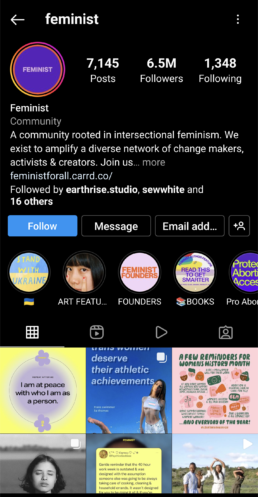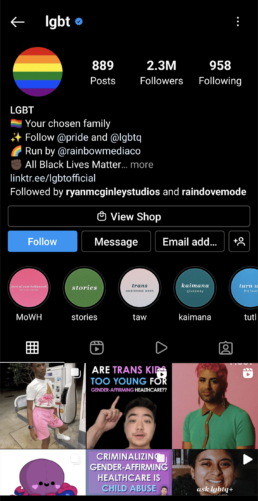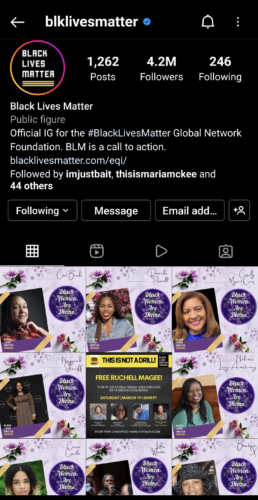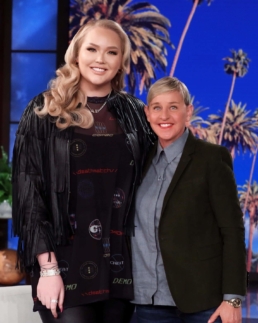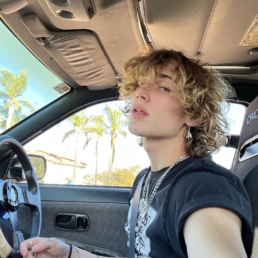Our Marketing Assistant, Ash (18), reflects on what it is like to have grown up in the social media boom, and how it has both enhanced the lives of young people and had devastating effects on their mental health.
As the popularity of social media grows amongst the younger generation, it is no wonder why teenagers have become more and more insecure. According to the most recent social media statics, there were 3.78 billion social media users nationwide in 2021, many of which are impressionable teens. Most of our previous offline social interactions have been replaced using social media. Even when we’re out with friends, we feel tempted to check social media on a regular basis.
Furthermore, many children between the ages of 5-10 are being given electronic devices, such as smartphones, forgoing traditional play and outside activities. As a result, more children are installing apps with a 13+ age limit (such as TikTok) and are exposed to different ranges of content. Lots of the content on these apps may be potentially harmful and/or rated 18+. This could lead to children being influenced to do things that are harmful to themselves and others. They might participate in harmful pranks, post embarrassing content, or cyberbully others without understanding the gravity of what they are doing.
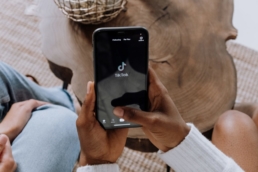
Mental health
Many young teens have low sense of self-worth or a negative body image to start with, but seeing idealised, unattainable body types plastered over their social feed is surely only going to make this worse. Even if you’re aware that the pictures you’re seeing on social media have been modified, they can still make you feel insecure about your appearance.
When teenagers and young adults see influencers/celebrities that they admire and look up to, they tend to imitate some of their habits, fashion trends, and other aspects of their personalities. While this may not seem to be a bad thing, some teenagers and young adults lose sight of who they are and are unable to develop their own opinions and personas. Most celebrities/influencers (such as Kim Kardashian) edit their pictures before sharing them online – many teenagers may start mistaking fake for reality.
Moreover, to be mentally healthy, people require face-to-face contact. You’re more likely to develop mood disorders like anxiety and depression if you prioritise social media over in-person relationships. Multiple studies have said that heavy social media usage can increase risk of depression, anxiety, loneliness, self-harm, and even suicidal behaviour. Suicide is one of the most common causes of death among children under the age of 14.
Cyberbullying
Cyberbullying is not a new topic, but the growth of social media has pushed it to greater levels. A few statistics from StopBullying.gov show:
Up to 43% of teenagers have been bullied online. At school and online, nine out of ten LGBTQ+ students have been harassed, 58% of teens haven’t told their parents or an adult about something hurtful or mean they encountered online, around 10% of teenagers say they’ve been bullied on social media, and many others have experienced vile comments. Instagram and other social media platforms can be major sources for spreading damaging rumours, lies, and abuse that can lead to bigger and scarier issues (for example stalking).

Raising awareness
However, we can’t forget that social media has also been used to raise awareness on important topics.
The #metoo movement, #Lovewins, and #BLM have all benefited from the use of social media. Many people have come forward to talk about their prejudice experiences. Social media has become a main outlet for people’s facts and information.
#BLM; The Black Lives Matter movement began as an online community dedicated to combating anti-black racism and police violence against African Americans in particular. The online community was able to organise, mobilise, and raise its visibility using the hashtag and social media platforms, eventually growing into a group with over 40 chapters working to support black lives. Using social media and tools like hashtags, promoted information, raised awareness, and gave the BLM community a place to form and organise online.
#Metoo; The ‘Me Too’ movement started in 2006 but gained traction in 2017 when a few high-profile actresses spoke out about their sexual harassment experiences in the film industry online and used the hashtag #MeToo to do so. The topic’s popularity sparked a greater awareness of the ‘Me Too’ movement, sexual harassment, and assault with the hopes of reducing tolerance for abusive behaviour and increasing support for victims.
#Lovewins; Many people across many platforms applauded the Supreme Court’s decision in 2015 to legalise marriage between same-sex couples. With the courthouse victory, the HRC’s #LoveWins movement was pushed into full swing on social media, encouraging people to share thoughts and pictures in celebration of the victory by using the #LoveWins hashtag. Now there are profiles on all social media platforms, promoting LGBT+ rights.
Social media as a job
Social media has helped many people when it comes to careers. Influencers, such as Nikkie Tutorials, use YouTube and other social media platforms, as a source of income. Nikkie Tutorials is a Dutch makeup artist and beauty YouTuber. Her YouTube video “The Power of Makeup” went viral in 2015, which lead to dozens of new similar videos of people showing off their faces with and without makeup, she now has 13.9 million YouTube subscribers and uses her platform to promote make-up positivity. She also went on to host the Eurovision Song Contest in 2021 and collaborate with big artists including Adele. Nikkie came out as transgender in her ‘I’m coming out’ video back January 2020 and has since encouraged many individuals (young and old) to be themselves. She made appearances on ‘The Ellen Show’ to discuss her experiences before and after coming out as transgender.
TikTok (formerly known as Musical.ly) has grown in popularity. Many lives have been changed as a result of it, and many people have achieved long-held goals. Many TikTok stars (such as Vinnie Hacker) have been able to showcase their talents and have gone on to perform music, appear in films, model, and create YouTube videos, among other things.
Final thoughts
I am 18, and my experience with social media has been both positive and negative. I’ve experienced cyberbullying, I’ve seen disturbing videos that have been posted and shared across social media, I’ve seen my own friends and family compare themselves to other people, I’ve come across people who faked their true identity but I will admit, I have also met so many kind hearted people (who are now my close friends) through social media.
Yes, sometimes social media can be a source of joy when I am struggling mentally, it can make many people feel less alone (myself included), but you just need to be aware of the potential dangers. Sometimes I feel empowered by the things I see on social media, but most of the time, I tear myself down whenever I see the beauty standards of today.
Overall, we can’t stop social media from continuing to grow, whether we like it or not. Everything has a positive and negative side, and we can all agree that technology and social media have both. My advice is to use social media for entertainment purposes only, instead of allowing it to consume your life, remember that most things you see and read aren’t always true, find out for yourself using reliable sources rather than just TikTok. I understand that some people’s careers are on social media and technology can change people’s lives for the better, but even so, most influencers have stated that they gradually lost interest in making videos because of how toxic social media has become and they started seeing it as a chore rather than something they like, take Jenna Marbles, a former YouTuber (that most people know and love) as an example. Encourage the next generation to go outside and spend time with their friends and family, use social media to spread positivity, stay safe and use it to your advantage, don’t abuse it.


